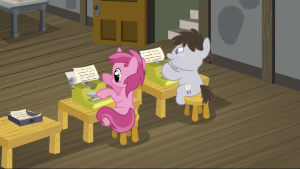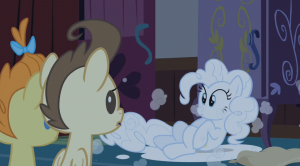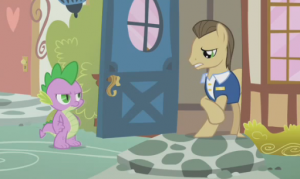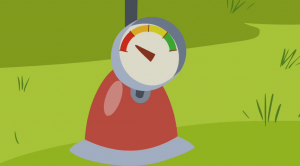The Not Completely Obsolete Typewriter
It’s been awhile since I had originally written about the stupidity of the typewriter. Years have passed, and I still think it’s dumb for a writer to try to use it in order to convey some sort of personal image as being writerly. However, when I attended a workshop in the home of poet, mystery writer, and educator John Brantingham, he presented an argument that typewriters weren’t completely useless.
In fact this argument was compelling enough to make me start actively seeking out typewriters in antique shops. Although, I still haven’t found a cheap one that isn’t at least partly, if not completely broken.
Brantingham has two small, cute, purely mechanical typewriters in his home in addition to his computer machine. We had taken a break from his lecture on novel writing and discussion went to the typewriters. I mentioned my blog inspired by UCI students who were impressed by some poet who typed on a typewriter. They didn’t think he was an impressive poet because of his poetry, but because he typed his poems on a typewriter (the “real” way).

“I thought I could fool editors by typing my poems in American Typewriter, but when I got a rejection, I knew it wasn’t working.”
Although Brantingham would jokingly deny ever having thought out a thing in his life, everything he ever says always seems as though a careful amount of time and critical thinking had gone into it. Maybe it was just that his words always seem free of bullshit, which sets a very high standard for a creative writing teacher. Many of them have their snake oil that they buy into, in the worst of cases that snake oil destroys writers. “Destroy” can mean innumerable things.
“You know, the great thing about typewriters is that you can’t go back and edit.” This solves the problem of writers going back through their work and tinkering as they go, a common problem.
I had this problem in the past and considered a typewriter to force myself out of it. However, when I thought of using my parent’s electric 1000watt motorized Snorlax sized typewriter, I just thought it would be easier to just be a terrible writer (the kind that splits infinitives apparently).
Brantingham told me that I should buy a cheap, small, purely mechanical typewriter which would be built to last forever, and it should only cost me about $25. To be fair the last time I went antiquing in Pomona, the cheapest I found was about $35 and most of the ones under $100 were mostly just broken beyond explanation of why they weren’t in the trash. Although, I think he said something about getting one made around 1920 while the ones I looked at were 1960’s. I don’t really remember, sorry. Also he’s probably better at antiquing than I am. Also I only went to like five places.

Antiquing? Is this a CKY/Jackass reference joke using a scene from My Little Pony? Yes. Eclecticism is something I pride myself on.
I told Brantingham, “Well, you still have to retype it.” I mean come on! The digital world is sucking us all into it (Digimon was right). Brantingham had answers for this. He has answers for everything. I fear the day he doesn’t have an answer the way people in nowhere towns fear terrorists might attack their local Wal-Mart.

“I realized how dependent the Nowheresville, Kentucky’s economy is on the Wal-Mart, so now I am afraid to go to work in case there is a terrorist attack, like when they blew up the towers.”
He explained that typing your work all over again sentence for sentence and word for word will help you think critically about what you’ve written. It highlights syntax, word choice, and tense shifts as well as other problems. It’s perhaps the most in depth first edit you can get.
I think we all could benefit from retyping our work, but wait a minute. Couldn’t we just print it out? Why can’t I just use willpower to not edit?
Well, while writing you’re usually fighting a lot of different urges to do other things. Writing is hard, and you might want to do something less hard. Ron Carlson wrote an entire book about this aspect of writing. This method would take willpower which could be diverted to your not checking Facebook or going outside and getting some Taco Bell when you should be writing.

“The machine says you have just enough willpower to go 230 words before watching more low quality uploads of ‘Rocket Power’ on Youtube.”
That caption reminds me; the internet might be a good reason to invest in a typewriter.
Edit: Upon reading this blog, Brantingham explained to me the internet is the best place to buy typewriters. This blew my mind, because I just imagined shipping costs would be ridiculous. I guess typewriters fit into those “fits it ships” boxes.
3 Comments
Trackbacks/Pingbacks
- Typewriter < Almost Anything These Days | Writing Is Magic - [...] Next time, the real benefits of a writer using a typewriter! [...]


I have to say that there’s something really romantic about typing too. I enjoy the sounds and the smell and all my Hemingway fantasies.
Someone was saying that in a previous post about how it is like the scene from “Finding Forrester.” There’s something magic about “pounding those keys.”
There’s definitely a sense of power from your thoughts instantaneously causing a violent reaction of something outside of your body. This is why hitting Ctrl+P trips me out. A few keystrokes and now my drawing or Google maps directions or my story are suddenly a tangible thing.
Great start! I agree with the professor.
I am a writer. I just bought a 1958 Royal Futura 800 from Bob Green in Amherst at one of the last type shops still alive in Mass.. I love it. It has changed my writing world.
The typewriter is there when I am ready to write. There is more to it than just not being distracted by the laptop fan and internet. The manual typewriter sits precisely where you left it, at one spot on the page, whether you go away for a minute, or for a day. The next key you hit is the next printed letter, regardless of when you hit it. There is no screensaver. There is no hibernation. There is no re-booting. It is silent and ready, a sentry with one purpose: to put my thoughts immediately to paper.
Why use a typewriter as an author? It makes me think. I can type faster than I can think; I needed a set of “brakes” to slow down; a computer keyboard and mouse was not enough. It’s the difference between driving and walking. Drive a car along the winding road through the woods and you will get to the end faster. But, walk the edge of the winding road and you will feel the cool air and smell the woods. You will hear the birds. You will sense fear when you hear a rustling in the brush from an unseen animal. You will get wet when it starts raining.
The typewriter is a walk, not a drive. It is feeling, not just doing.
You enjoy the editing first on the paper itself, a tactile experience. You have a stack of pages that you can scribble on. You can jot notes. You can add arrows and circles and squares and your own personal symbols that you cannot do with editing on a computer.
I own an Apple Macbook Pro and a Windows PC, but I no longer use them for first drafts. I use the Royal Futura. Then, when I have the original typed draft and a thorough edit on the typed page with swirling red pencil and little smiles next to the parts I like, I read it all into Dragon Naturally Speaking voice recognition software directly into the word processing software. It’s amazing the mistakes I pick up–dialogue that is unnatural to the ear, word redundancies, etc.–that I immediately fix after I’ve read the piece into MS Word. So, by then, I have the rough draft, the first pencil edit, and now a read-out-loud edit, all before I have composed with one key on the PC. It’s a great feeling of mastery. I now have the computer copy to share, email, edit further and tweak to my hearts content. It’s amazing how few think of the eighty dollar voice recognition software that can release a writer from the single most noted reason for not writing on a typewriter: the editing.
I’m always amazed at those that espouse techy solutions over mechanical…they never think of voice recognition software.
I can bring my manual typewriter to the kitchen table, to the desk by the window, or to a card table set up by a lake on a sunny day; no power cord, no batteries. My fingers provide the energy of the word by moving the keys and creating the strikes. If I’m angry, they strike hard and make big dark letters. If I’m sad, they are faint. The print expresses my emotions, hard or soft, just as piano keys under the fingertips of an accomplished pianist.
Mr. Green at Amherst Typewriter in Massachusetts reminded me of another advantage of the typewriter: A computer printer will run out of ink suddenly, and usually at midnight, just before the school paper is due. The typewriter ribbon simply becomes ever so slowly more faint, and never quits abruptly. It is changed only when you, the writer, can no longer read it. Only when you say it’s done. (Ribbons for mainstream vintage machines are still available from many sources, including Amazon, for about eight bucks a ribbon for a few hundred pages; reasonable compared to a sixty dollar printer ink cartridge.)
If I send you a letter hand-written, you may not be able to read my penmanship, my curse since childhood. If I email you, you will read it quickly and it will go to your “dead email” file and someday be purged. If I hand or mail you or a typed note, with the quirky dropped “k”s and unique font of my own Royal, you will study it and read it–twice, maybe even three times–and you will think about it. You may or may not save it, but you will at least think about it. That is all I can ask as a writer.
This was an interesting blog post. Keep looking…great typewriters are out there.